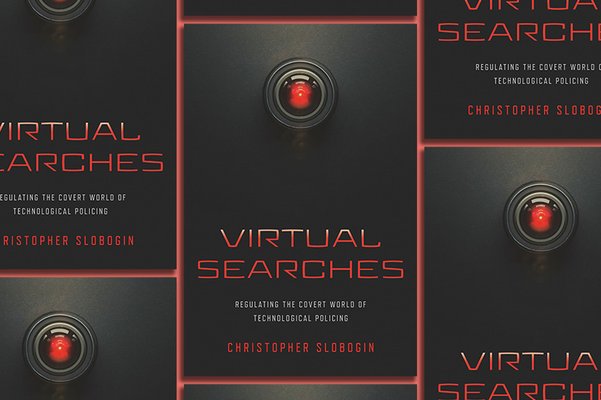‘Virtual Searches’ by Christopher Slobogin

Christopher Slobogin of Vanderbilt Law School has authored Virtual Searches, Regulating the Covert World of Technological Policing, a book analyzing how the police have utilized technology and how this could be regulated.
From the book’s description:
A close look at innovations in policing and the law that should govern them
A host of technologies—among them digital cameras, drones, facial recognition devices, night-vision binoculars, automated license plate readers, GPS, geofencing, DNA matching, datamining, and artificial intelligence—have enabled police to carry out much of their work without leaving the office or squad car, in ways that do not easily fit the traditional physical search and seizure model envisioned by the framers of the Constitution. Virtual Searches develops a useful typology for sorting through this bewildering array of old, new, and soon-to-arrive policing techniques. It then lays out a framework for regulating their use that expands the Fourth Amendment’s privacy protections without blindly imposing its warrant requirement, and that prioritizes democratic over judicial policymaking.
The coherent regulatory regime developed in Virtual Searches ensures that police are held accountable for their use of technology without denying them the increased efficiency it provides in their efforts to protect the public. Whether policing agencies are pursuing an identified suspect, constructing profiles of likely perpetrators, trying to find matches with crime scene evidence, collecting data to help with these tasks, or using private companies to do so, Virtual Searches provides a template for ensuring their actions are constitutionally legitimate and responsive to the polity.
Slobogin served as Associate Reporter for Principles of the Law, Policing, completed at the 2022 Annual Meeting. He recently appeared in an episode of The Lawfare Podcast to discuss his book.
